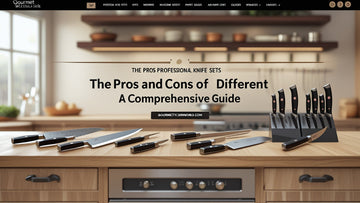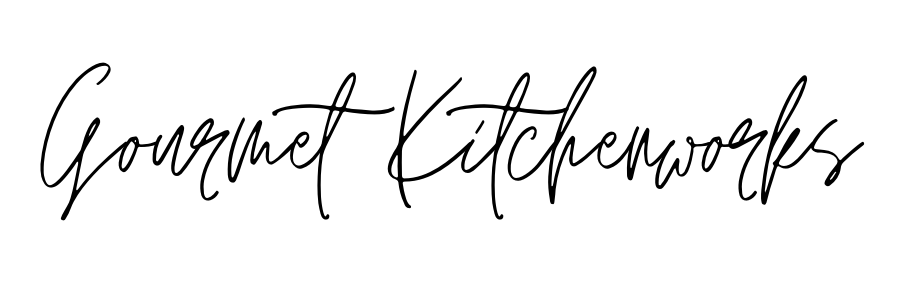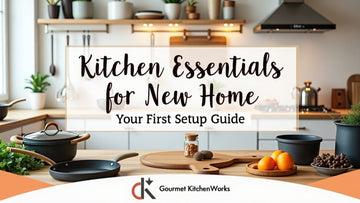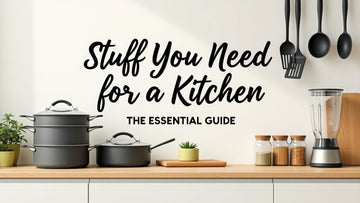The Pros and Cons of Different Kitchen Knife Sets: A Comprehensive Guide
by Michele Ekins on May 22, 2025

Choosing the right kitchen knife set can be a daunting task, especially with the pyramids of options available. Whether you're a professional chef or a home cook, understanding the advantages and disadvantages of different knife sets is crucial. This guide delves into the pros and cons of various kitchen knife sets, helping you make an informed decision.
Key Features to Consider While Choosing a Knife Set
Let’s look into some basic things to get the sharpest knife set.
-
Sharpness: A sharp blade ensures efficient and safe cutting.
-
Blade Durability: High-quality steel resists wear and maintains edge retention.
-
Ergonomic Handles: Comfortable grips reduce hand strain during prolonged use.
-
Rust-Resistant Knives: Stainless steel blades prevent corrosion.
-
Knife Maintenance: Regular caring and proper storage extend the lifespan of your knives.
-
Budget-Friendly Sets: Affordable options without compromising essential features.
Types of Kitchen Knife Sets
Professional Knife Sets
Pros:
-
High-Quality Materials: Often made from premium stainless steel, ensuring durability and sharpness.
-
Comprehensive Selection: Includes a variety of knives for different tasks.
-
Ergonomic Handles: Designed for prolonged use without discomfort.Gourmet Kitchenworks
Cons:
-
Cost: Generally more expensive due to superior materials and craftsmanship.
-
Maintenance: Requires regular sharpening and proper care.
Beginner Kitchen Knives
Pros:
-
Affordability: Budget-friendly options suitable for beginners.
-
Ease of Use: Simple designs that are easy to handle.
Cons:
-
Limited Durability: May not last as long as professional sets.
-
Fewer Options: Basic sets might lack specialized knives.
Kitchen Cutlery Sets
Pros:
-
Versatility: Includes a range of knives and utensils.
-
Aesthetic Appeal: Often comes with stylish storage blocks.Gourmet Kitchenworks
Cons:
-
Space Consumption: Larger sets require more storage space.
-
Redundancy: May include knives that are seldom used.
Forged vs. Stamped Knives
Forged Knives
Pros:
-
Strength: Made from a single piece of steel, offering robustness.
-
Balance: Heavier and well-balanced, suitable for precise cuts.Gourmet Kitchenworks
Cons:
-
Price: Typically more expensive due to the manufacturing process.
-
Weight: Heavier knives may cause fatigue over extended use.
Stamped Knives
Pros:
-
Lightweight: Easier to handle, especially for quick tasks.
-
Cost-Effective: Generally less expensive than forged knives.
Cons:
-
Durability: May not be as long-lasting as forged counterparts.
-
Flexibility: More prone to bending under pressure.
Conclusion
Choosing the right kitchen knife set can elevate your cooking experience, but it's essential to weigh the pros and cons of each option before making a decision. From premium forged sets to budget-friendly stamped alternatives, each type offers unique benefits tailored to different needs and cooking styles.
Ready to upgrade your culinary tools? Visit us at Gourmet Kitchenworks and explore our expertly curated selection of high-quality knife sets. Shop now and bring professional performance to your kitchen!
FAQs (Frequently Asked Questions)
Q: What is the difference between forged and stamped knives?
A: Forged knives are made from a single piece of steel, offering superior strength and balance. Stamped knives are cut from a sheet of steel, making them lighter and more affordable but potentially less durable.
Q: How often should I sharpen my kitchen knives?
A: It's recommended to hone your knives regularly and sharpen them every 6-12 months, depending on usage.
Q: Are expensive knife sets worth the investment?
A: High-quality knife sets offer better durability, sharpness, and comfort, making them a worthwhile investment for frequent cooks.
Q: Can I wash my knives in the dishwasher?
A: It's advisable to hand wash knives to maintain their sharpness and prevent damage.




